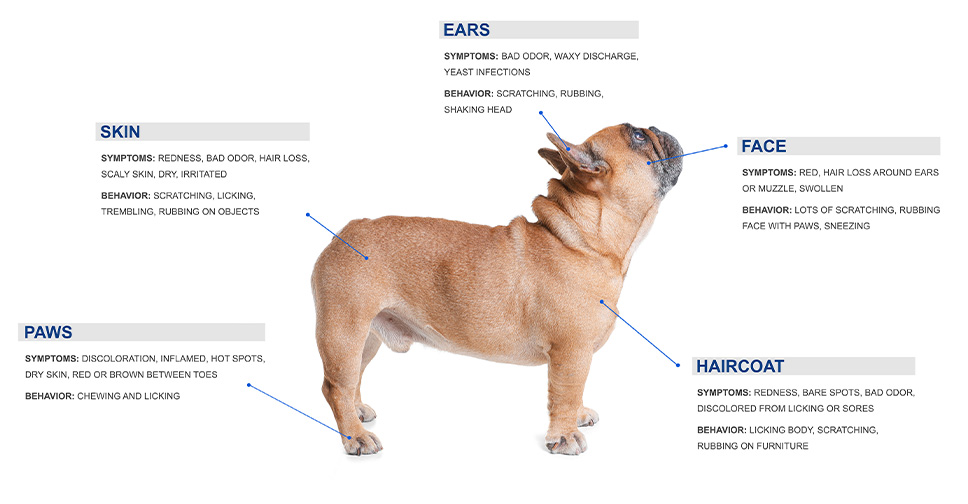Excellent News To Selecting Best Vitamins For Dogs
Excellent News To Selecting Best Vitamins For Dogs
Blog Article
Omega-3 Fatty Acids For Cats And Dogs - How Can They Help Joint Health?
Omega-3 fatty acids, in particular EPA (eicosapentaenoic Acid) and DHA docosahexaenoic acid play a essential role in maintaining joints' health in dogs and cats. This is how:
Anti-inflammatory properties
Reduce Inflammation
Function The Omega-3 fatty acids exhibit strong anti-inflammatory effects. They reduce the production of proinflammatory substances such as eicosanoids and cytokines that may cause inflammation.
Benefits In reducing inflammation within the joints, Omega-3s can aid in reducing swelling and pain that are associated with arthritis. This enhances the quality of life for pets by improving the comfort level for pets.
Joint Lubrication and Health
Improved joint Lubrication
Function Omega-3 fatty acids maintain the health of the synovial fluid that lubricates joints.
Benefits: More lubrication results in better joint mobility and less friction. This reduces wear and tear on cartilage. This is particularly beneficial for pets with joint issues or susceptible to developing them.
Cartilage Protection and Repair
Cartilage Protection:
Function: Omega-3s contribute to the overall health of cartilage by reducing the activity of enzymes that degrade cartilage.
Benefits: Preventing cartilage degrading helps to maintain joint strength and slow the progression of joint-related diseases such as osteoarthritis.
Immune System Support
Immune System Regulation:
Function: Omega-3 fatty acids help regulate the immune system, promoting a balanced inflammatory response.
Benefits of healthy immune system It helps to stop joint inflammation and injury by controlling the immune system.
Comfortable Mobility and Increased Comfort
Improved Mobility
Omega-3s may help your pet get around more easily by decreasing inflammation and helping maintain joint structures.
Benefits A lot of pets, especially older animals or those with arthritis show less pain and better mobility. This leads to an active and happier life.
Additional Health Benefits
Overall Health:
Function Omega-3 fatty acids help with skin, cardiovascular, and coat health, which can contribute to the overall well-being of pets.
Advantages: A pet that has better joint and bone health will likely be more active.
The Use of the Internet
Dosage, administration and dosage: The amount of Omega-3s that's appropriate for your pet depends on its size, weight and the specific health condition. The recommendation of the veterinarian or label directions are crucial.
Omega-3 sources Fish oil supplements that are of good quality can be a great source of EPA, DHA and other omega-3s. To ensure safety and effectiveness it is essential to choose products that are specifically formulated for your pet.
Omega-3 supplements can trigger negative side consequences. Some pets have stomach problems or fishy breath. There is a way to reduce the risk of the risk of adverse effects by beginning with the lowest dosage, and then gradually increasing the dose.
The final sentence of the article is:
Omega-3 fatty acids are highly beneficial for joint health and wellness in dogs as well as cats. Their anti-inflammatory properties, their ability to enhance joint lubrication help protect cartilage and the immune system contribute to better joint function and less discomfort. Regular supplementation can lead to greater mobility, a healthier lifestyle and increased activity for pets. Follow the recommended dog skin allergy treatment for more info including pet ashwagandha supplements, pet hemp supplements, pet yucca supplements, pet supplements for pets with joint degeneration, pet skin and coat care, pet digestive health, pet aloe vera supplements, pet joint care supplements and more.
Quercetin Can Help Skin Allergies In Cats And Can Help With Allergies In Dogs And Cats.
Quercetin has been shown to have numerous positive effects in the treatment of skin allergies in both cats and dogs. Quercetin can treat allergic skin conditions in dogs as well as cats
Anti-Inflammatory Properties
Inflammation reduction:
Function The anti-inflammatory properties of Quercetin block the production of proinflammatory chemicals such as histamines or cytokines.
Benefits Quercetin is a potent antioxidant that helps reduce inflammation. It also helps to relieve redness, swelling, pain, and discomfort caused by skin allergies.
Antihistamine Effects
Natural Antihistamine:
Quercetin has the following function: It inhibits the production of mast cell histamine. Histamines is a chemical which can trigger itching and other allergic symptoms.
Benefits Naturally occurring antihistamine quercetin reduces itching and can also help with allergies of other kinds. This is why it's beneficial for animals suffering from allergies.
Antioxidant Activity
Oxidative stress Reduction
Function: Quercetin acts as an antioxidant to help neutralize free-radicals and decrease the damage caused by oxidation.
Benefits - Reducing oxidative stress can protect skin from damage and promote healing.
Immune System Modulation
Balanced Immune response
Function: Quercetin is a modulator of the immune response that ensures a balanced reaction to allergens.
Benefits: A balance immune response prevents excessive reactions to allergens. This decreases the frequency and severity of allergic manifestations.
Enhancement of Skin Barrier function
Strengthening Skin Barrier:
The function: Quercetin is essential in maintaining healthy skin barriers by helping to produce ceramides.
Benefits: A thick skin barrier shields you from environmental allergens. It also lowers the risk of infections and allergic reactions.
Allergy Symptom Management
Pain Relief:
Function: Quercetin inhibits enzymes involved in the inflammation process including lipoxygenase.
Benefits This product helps reduce symptoms, such as itchiness and swelling. It also reduces redness, redness, and itching.
Usage and Considerations
Dosage and Administration: The appropriate dosage of quercetin will depend on the size of the pet, weight, and specific health needs. Please follow the directions provided by your vet or on the label of the product. Quercetin is available in combination with bromelain in order to enhance its absorption.
Quercetin supplements are available to pets in a variety of types. They include capsules, tablets, and powders. Choose a product that is safe and effective for your pet.
Side Effects: Quercetin is usually safe however high doses may cause gastrointestinal discomfort in certain pets. It is recommended to begin at a lower dosage and increase it gradually. This will help minimize the adverse effects. It is important to check for any adverse reactions, such as nausea or diarrhea.
Conclusion
Quercetin aids in managing skin allergies in dogs as well as cats. Its antihistamines, antioxidants, and anti-inflammatory properties help reduce itching, inflammation, and oxidative damage, while also enhancing the skin barrier, and modulating the immune response. Regular use of quercetin may provide significant relief from allergies and improve overall skin health, enhancing the quality of life for pets suffering from skin allergies. Follow the top visit website on herbs good for dogs for website advice including pet goldenseal supplements, dog supplements, pet bladder supplements, pet supplements for pets with fear of nail trimming, pet supplements for active pets, cat supplements, pet multivitamins, pet supplements for pets with fear of other animals and more.
Apple Cider Vinegar Helps With Dog And Cat Yeast Infections.
Apple cider vinegar (ACV) is often recommended as a natural treatment for yeast infections in dogs and cats. ACV is acidic and can produce side effects. While some anecdotal or scientific evidence suggests its advantages, it is best to use it under the guidance of a vet due to its possible adverse side effects and acidic nature. Here's how ACV can be thought of as helping with yeast infections:
Antifungal Properties
Acidic Environment
Function: ACV is acidic, with a pH ranging between 2.5 and 3. It is a hostile environment for yeast to grow.
Benefits: Applying ACV or adding dilute ACV to the bath water of your pet may lessen the yeast overgrowth on the ears and skin.
Skin pH Regulated
Balancing Skin pH:
ACV's function is to balance skin pH. This helps maintain a healthy barrier on the skin, and also inhibits the growth of yeast.
Benefits: Maintaining a proper pH balance on the skin may help to in preventing yeast infections and boost overall skin health.
Anti-inflammatory action
Reduce inflammation:
ACV has mild anti-inflammatory effects.
Benefits: reducing swelling may reduce symptoms of yeast infections, such as irritation, pain, and redness.
Support for Digestive Health
Internal Use
ACV has been found to regulate gut flora and promote digestion when taken in small quantities and highly dilute.
Benefits The healthy environment in the gut supports overall immune functions and microbial imbalance which can reduce the growth of yeast.
Use and considerations
Topical application: Mix ACV using water (typically 1 part ACV to 1-2 parts water) and apply it to rinse or spray to the affected areas of the skin or ears. It is best to avoid using it directly to open wounds or on skin that is sensitive.
Internal Use: If considering internal use, always consult with a veterinarian first. ACV must be highly diluted (1 teaspoon to 1 tablespoon per cup of water) and administered in small doses to avoid stomach irritation or upset.
Check for signs of irritation when using ACV. Discontinue use if any negative reactions develop.
Consultation With Veterinarian: You should consult with your veterinarian before you use ACV for pets suffering from yeast infections. They can guide you in the proper dilution techniques applications, as well as potential risks to your pet.
Click here to view the full article.
Apple cider vinegar can be utilized to treat yeast infections in dogs and cats however, it must be administered under the guidance of a veterinarian. ACV is acidic, and could create a situation that does not encourage yeast growth. It could also possess moderate anti-inflammatory effects. It is vital to dilute ACV properly and apply it carefully in order to avoid irritations or adverse reactions. ACV is recommended to use in conjunction with a complete treatment plan to treat yeast-related infections. View the best natural dog probiotics for site info including pet calming supplements, pet dental health, pet supplements for pets with obsessive licking, pet digestive health, pet supplements for pets with luxating patella, kidney disease in cats, pet coat supplements, pet bone broth supplements and more.